Video: Time for Fall Wall Planters with Garden Answer
Watch as Laura from Garden Answer creates a beautiful planter for Fall using Flower-tone and Potting Soil Mix!
Featured Products:
Watch as Laura from Garden Answer creates a beautiful planter for Fall using Flower-tone and Potting Soil Mix!
Featured Products:
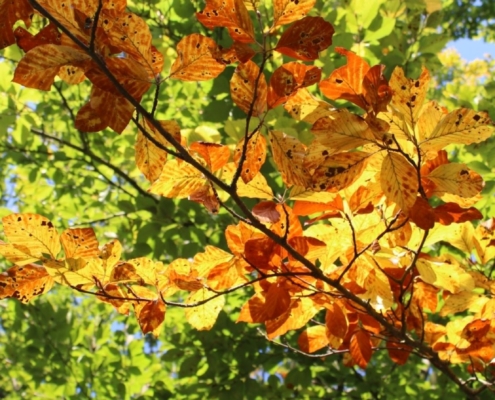
Summer has come and gone— but that doesn’t mean you should give up and let your garden go for the year! The colder season signals that it’s time to prepare your green space for winter and find alternative ways to keep your favorite plants in your life. Keep reading to ensure you’ll be ready when the temperatures drop.
Don’t dig up your perennials just yet! While it’s true that they’re prone to being taken by frost, if you take enough precautions, you should be able to conserve them and plant seeds for a beautiful spring bloom. Be sure to tackle weeds to preserve the soil and add mulch to protect them from the harsh winter wind. Six months later, you’ll be glad you took these extra steps! For fall-planted bulbs such as tulips, daffodils, and hyacinths, be sure to fertilize with Espoma Organic Bulb-tone.
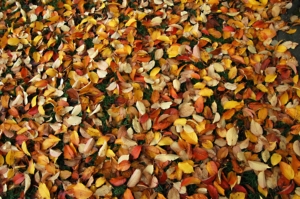
Care for your lawn
Raking those autumn leaves can sometimes feel like a never-ending chore. But it doesn’t have to be that way. In fact, you should start to look at them as a benefit. You can actually mow the dead leaves and create a makeshift fertilizer for your soil. This will lessen the burden of cleaning up every time there’s a strong wind that knocks a pile of leaves loose and benefit your soil. To show your lawn a little extra love, check out these premium organic lawn fertilizers.
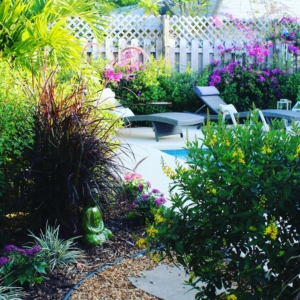
Fluff up your garden with trees and shrubs
Colder weather doesn’t have to mean barren backyards. Fall is actually a great time to plant trees and shrubs! While the weather is cooling off, the soil is still warm enough for the roots to develop in them, which is where Bio-tone Starter Plus might come in handy. After planting, they will go dormant as the soil cools. Just be sure to water them beforehand so they’re ready to jump back to life in the spring.

Bloom your flowers indoors
Contrary to popular belief, the vibrant flower garden of your dreams can still be a reality even during the harshest winter months. A technique that forces bulbs to bloom indoors can help you bring it indoors! So while it may be a pure white winterland outdoors, your windowsill can still brighten up your day.
Take care of your equipment
Before you pack everything up for the season, be sure to give your tools a good cleaning. Wash off any excess dirt to avoid returning to rusty tools in the spring. You can also coat your metal tools in vegetable oil to avoid cracking from the harsh, cold weather. Lastly, sharpening your pruners and loppers so that when you’re ready to use them again, you’ll be pleased to find tools that feel like they’re brand new!
Do you feel ready to face the coolers months yet? All it takes is some diligence and Espoma knowledge to be prepared for the winter and ready for a strong comeback in the spring. So grab those gardening tools and start today.
For more about creating leaf mulch, watch this video from Laura at Garden Answer!
Featured Products
Have you thought ahead to your fall harvest yet? August is prime time to plant delicious and nutritious vegetables that will come to life in the cooler months. And there’s nothing better than being able to spice up your home-cooked dishes using your very own garden — no need to run to the supermarket! Read on to find out which veggies you should be planting right now.
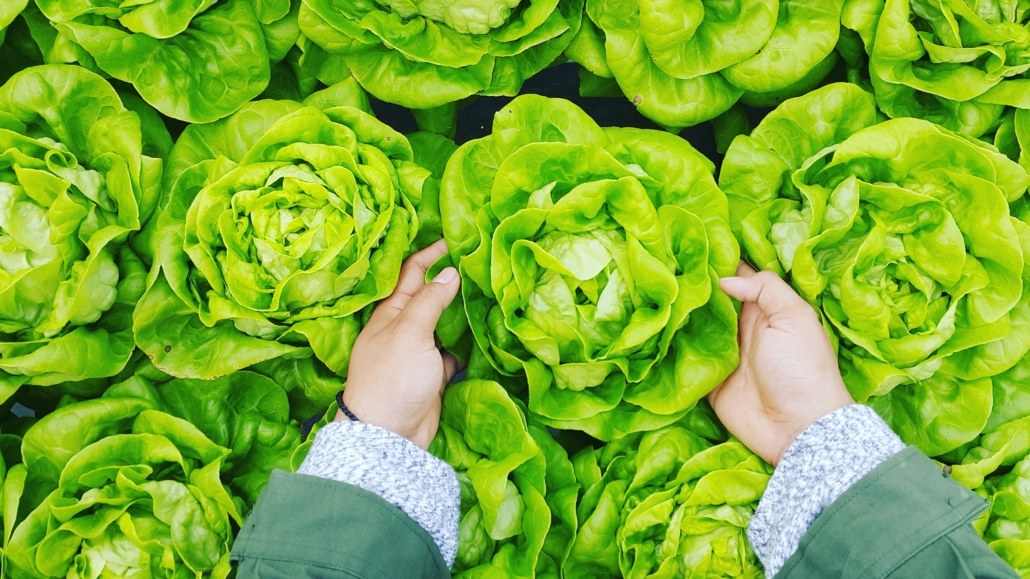
Lettuce
Did you know lettuce cannot be frozen, dried, pickled, or canned? That’s why you have to eat it fresh! Luckily, planting it right now means you’ll be able to enjoy it in just a few months. A fall harvest is ideal as lettuce’s sturdiness prevents any frost from destroying it. These leafy greens are a good source of vitamin C, calcium, iron, and copper — making it the perfect base for a healthy salad. Keep an eye out for the dark green leaves when harvesting as they’re even healthier than the light green ones.
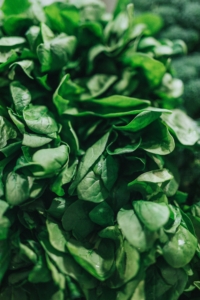 Spinach
Spinach
Spinach is well known for its low-calorie count and high levels of vitamin A, C, and iron — making it the perfect addition to that healthy salad. This veggie also gives you the highest turnover out of all the others. If collected in small quantities, you can keep harvesting them late until May! The best time to start planting them is now, at the tail end of summer.
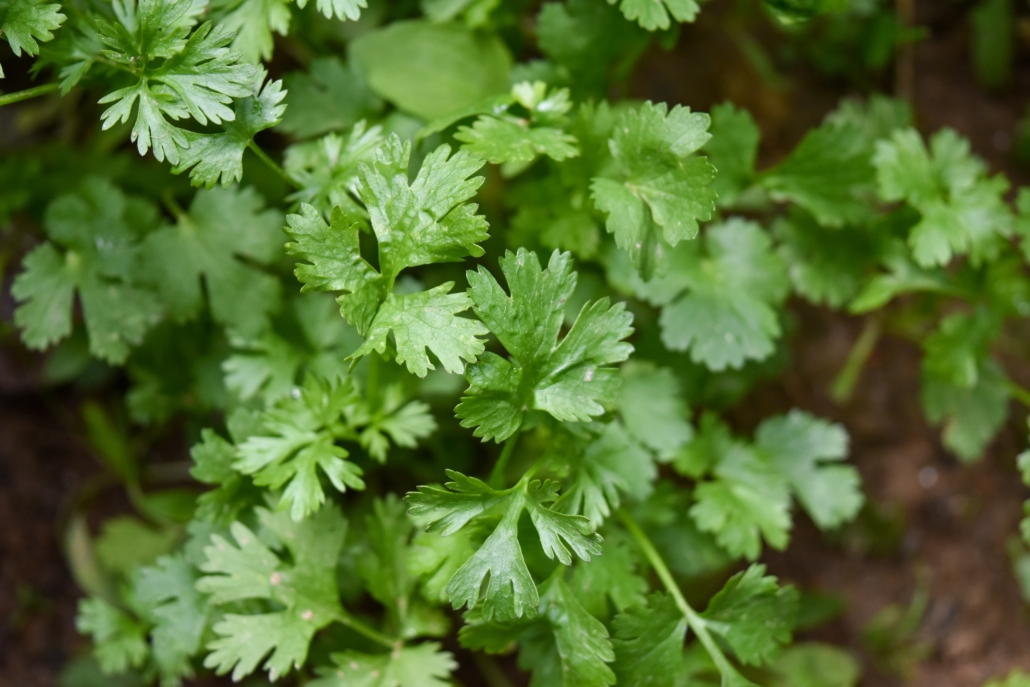
Parsley
Ready for another healthy addition to that salad we’re working on? Parsley is a rich source of Vitamin K, C, and A, and minerals like magnesium, potassium, iron, and calcium. It’s no wonder this veggie has been used in dishes since ancient Rome! It’s also believed to have anti-tumor, anti-bacterial, and antifungal properties. Plant your parsley now to make sure you can reap all these benefits in the fall.
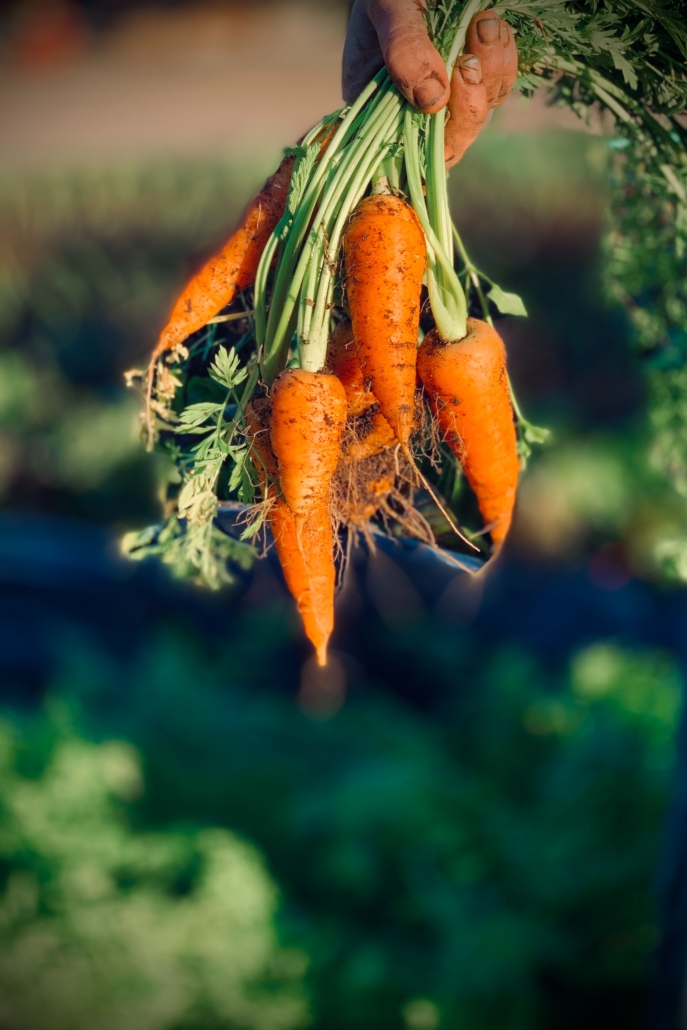
Carrots
If you’re planning on sowing some veggies that aren’t leafy greens, carrots should definitely be your first choice! As this vegetable grows into the fall season, the cool weather turns the starch to sugar, making them extra delicious. This sweet flavor makes them the perfect side or snack — sauteed, roasted, or even raw! Keep in mind that this plant does need a little extra care compared to some of the others on this list, so be sure to use vegetable food like Garden-tone to provide them with the energy they need to grow.
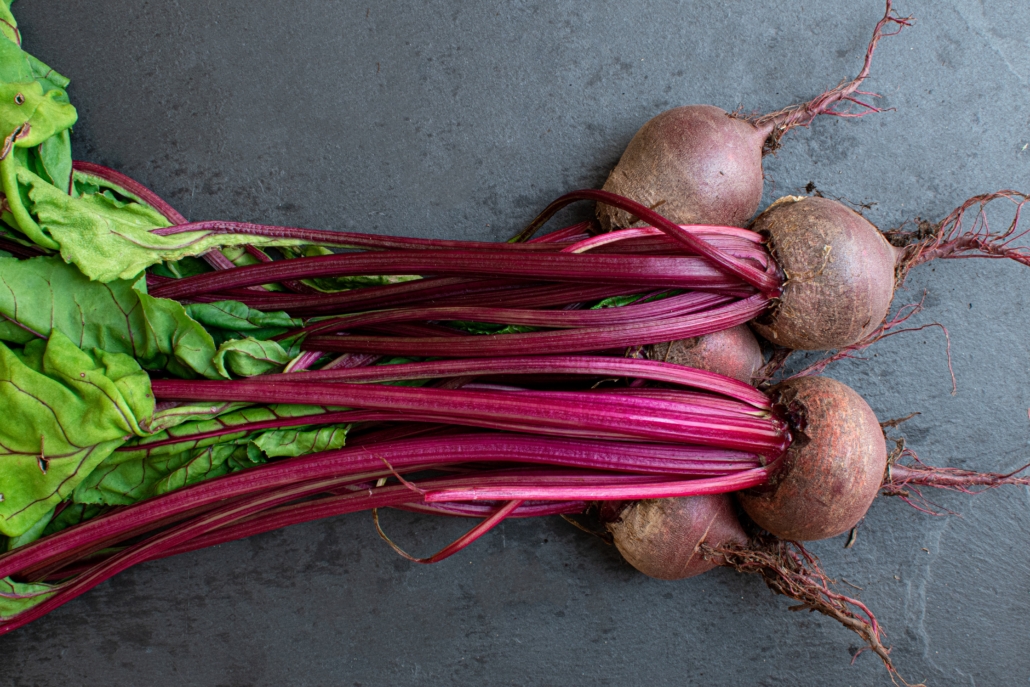
Beets
Last but not least, beets should definitely be on your August to-plant list. Did you know beets are edible from the tip of their green leaves to the bottom of their brown roots? They also help capture some hard-to-catch toxins and flush them out. These same antioxidants provide anti-inflammatory agents that provide a wide array of health benefits. Still not convinced? Since beet juice helps cleanse your liver, it’s thought that it can even help cure hangovers! If you want to make use of the entire plant and enjoy all these delicious benefits, make sure to sow the seeds now — about 8 weeks before the first frost.
*****
Just because summer is winding down, doesn’t mean it’s time to pack up your gardening supplies. August is the perfect time to plant some of your favorite vegetables! Cooking primarily with these veggies straight from your garden will give you some of the freshest and tastiest dishes. So get your family together, head outside, and get planting!
Featured Products:
Between the excitement of Halloween and the wonder of winter, fall can sometimes be pushed to the wayside. Not anymore.
While your fall decorating usually may be limited to a few gourds, this season, deck out your tablescape and call on family, friends and neighbors to come to your place. The table will make any meal special, especially when created with items from your home and garden.
Ways to build your centerpiece:
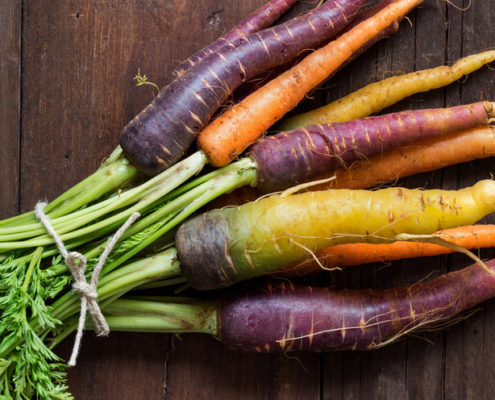
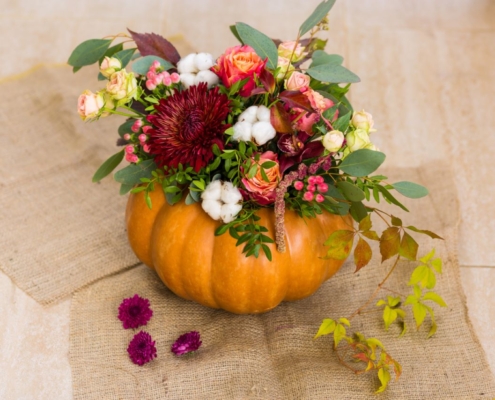
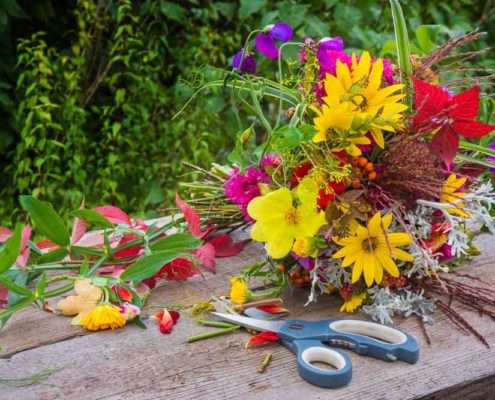
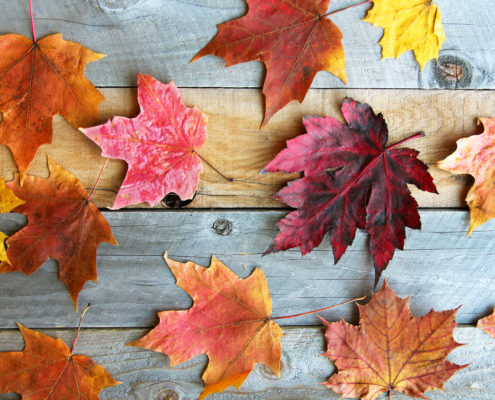
Need some inspiration? Laura from Garden Answer creates a succulent arrangement that would be perfect for any table.
Crisp fall days are perfect for planting garlic, onions and shallots. Fall planting gives them a big jump-start. The rule of thumb is to plant the sets (individual bulbs) after the fall equinox. They’ll thrive in a sunny location with well-drained soil, rich in organic matter. Apply Espoma’s Bio-tone Starter Plus, an organic fertilizer that contains beneficial bacteria and mycorrhizae to encourage strong root development. Your plants will put on roots in the fall but little or no top growth to survive the winter. Mulch the beds with a 4-6” layer of seedless straw, or leaves for winter protection and weed control. Plant additional bulbs in the spring for a double harvest.
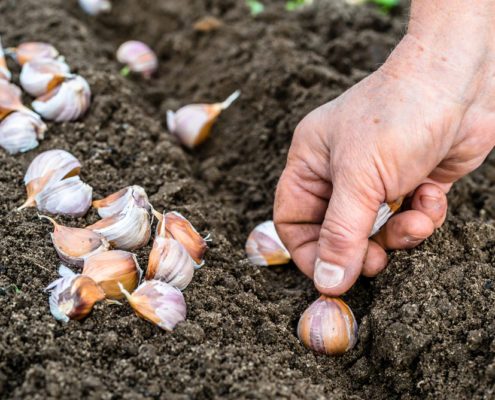
Garlic
Garlic grows best in full sun with loose, fertile soil that is moist but well-drained. Mix Espoma Organic Potting Soil into the planting bed to promote soil health. Plant your garlic cloves root side down, about 2” deep and 4-6” apart. Space the rows about 12” apart. Apply Espoma’s Bio-tone Starter Plus and water deeply before applying a thick layer of mulch. Young garlic shoots will appear in early spring and be ready for harvest by mid-summer. Garlic comes in all shapes and sizes. Their flower stems can also be picked and used in cooking.
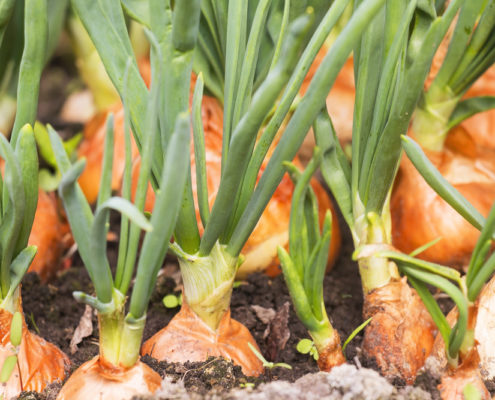
Onions
Onions prefer the same sort of soil as garlic, loose and fertile. It’s easiest to dig a trench 2-4” deep and set bulbs pointy side up, every 6” or so. Apply Espoma’s Organic Garden-tone to promote rooting and over all good health for the plants and soil. Water well if there is no rain in the forecast and apply a thick layer of mulch. Mulch will help keep the weeds down and the moisture in. The shoots will pop up in early spring. They are remarkably tolerant of frost.
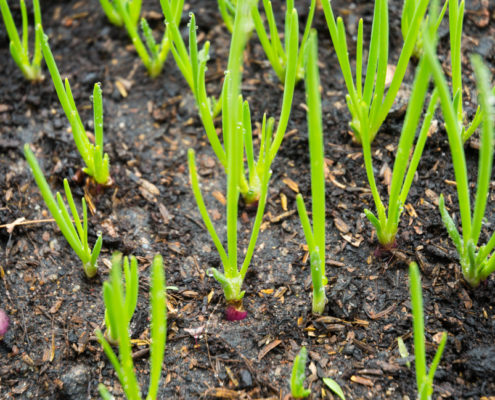
Shallots
Plant shallots in full sun in loose, rich soil that is moist but well-drained. Plant the bulbs 1-2” deep and spaced about 6-8” apart. Like garlic, each shallot bulb will yield a cluster of new bulbs. Use Espoma’s Bio-tone Starter Plus, an organic fertilizer to feed the soil and the bulbs. Shallots are shallow rooted. Mulching will help maintain an evenly moist soil.
Products to Buy:
Most avid gardeners have planted the veggie essentials in abundance, but what about the forgotten veggies and those varieties that look a little different from the usual choices?
There is a surprisingly long list of what are considered “unusual” veggies, but below are five of the strangest, most delicious ones that you’ll want in your garden.
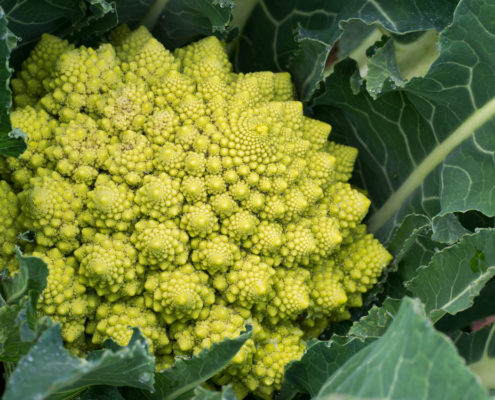
Romanesco Broccoli
If you’re going for the “wow” factor in your veggie garden, then Romanesco broccoli is the plant for you. Its intense, bright green fractals of broccoli are stunning. It is similar to cauliflower in terms of care. For best results, be sure to keep the soil moist and plant in a spot with full sun. Keep romanesco broccoli fed with Espoma’s Garden-tone. You can eat this stunning broccoli in a number of ways: raw in a salad, steamed, or grilled. Hardy in Zones 3-10.

Kaleidoscope Carrots
Jewel-toned colors like yellow, purple and red make for a fun pop of color for this classic favorite veggie. Choose rainbow carrots to add a variety of color to salads, sides and stir-fries. Plant seeds in late summer for a harvest that can be enjoyed on autumn days and even for Thanksgiving dinner. Straight roots need light, loose soil so sow carrot seeds in deep, well-worked soil in full sun. Grow in any region.
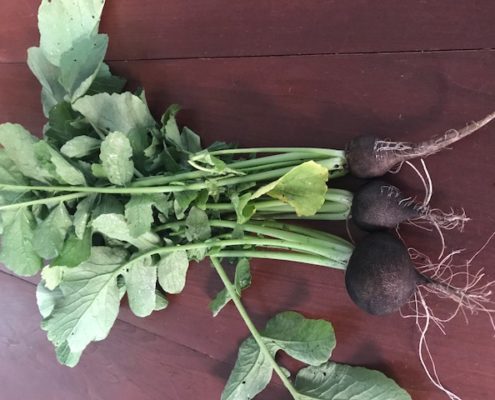
Black Radishes
Radishes are quick and easy to grow. Heirloom varieties of black radishes take about two to three times long to grow than regular radishes and tend to be spicier. Their crisp black skin and snow white flesh will make them an intriguing addition to any veggie platter. If radishes are too pungent, remove the skin before eating. Black radishes do need plenty of sun, so choose a spot where they can get 6-8 hours of direct sunlight. Feed with Espoma’s liquid Grow! for bigger plants. Grow in any region.
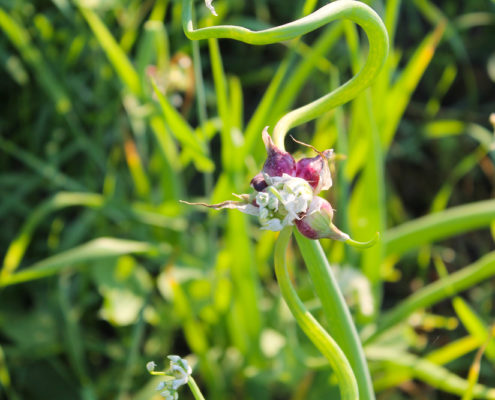
Tree Onions (Egyptian Onions)
These onions set their bulbs at the top of the plants. They taste similar to shallots, but with a more intense flavor. Stalks fall over when they get too heavy, allowing the bulbs to “walk” and plant themselves in a new space. One walking onion can travel as far as 24 inches and create six new onions. Plant bulbs in late summer (before the first frost) to harvest next year. Hardy in Zones 3-10.
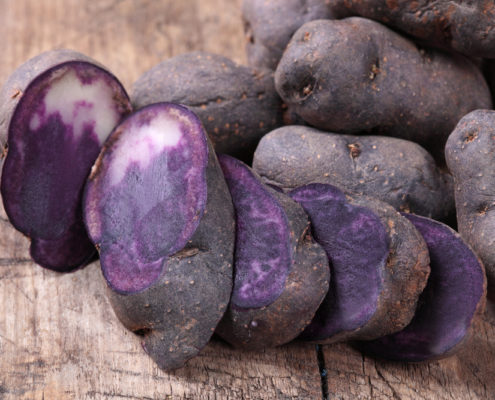
Blue Potatoes
The vivid bluish-purple hues of Adirondack potatoes make them a stunner for any dish — especially mashed potatoes. They taste like regular potatoes and get their unique coloring from anthocyanin. There are many varieties including some with a marbled blue and white interior. Plant potatoes in fall to get a head start on a spring harvest. Grow in any region.
Espoma products for Unusual Veggies:
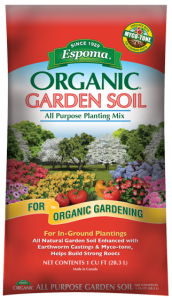
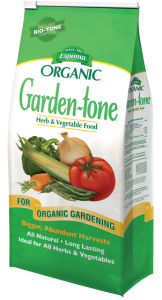
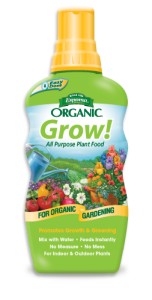
If you’re looking for the basics, learn how to plant veggies in containers!
Plants are the perfect décor for any holiday occasion, especially Thanksgiving. Houseplants fit in perfectly with the magnificent fall colors and magical feel of autumn. Use plants to transform your holiday table this Thanksgiving into something truly beautiful. What’s even better is there’s a style for every personality!
Use these easy steps to get the perfect look.
1. Pick a Focal Point
Select a plant that will draw your eye and establish the look for your centerpiece. A popular choice in focal plants is the croton, due to its exceptional color and texture, which brings autumn to the table. Crotons come in bright yellow, rich gold, flaming orange, deep red, and burgundy purple which, paired with its height, will brighten the table. Any houseplant with a full autumn palate is perfect to be a focal point. Keep the plant well-fed with our Indoor! liquid fertilizer to ensure your plant stays full of color all season long.
2. Dress it Up
To make a beautiful centerpiece really feel complete, find a fun container for your plant. If you are using this as a temporary focal point for Thanksgiving, any container will do. Otherwise, if you are looking for a more long term arrangement, be sure the container has proper drainage holes. Another option is to keep it in the original pot and wrap a seasonal cloth around the container to dress it up. Really stretch your creative mind and find a unique container, like a holiday turkey vase or a cornucopia to fill with a houseplant.
3. Accessorize
Be as creative as you’d like by adding supportive accents and characters to your table. Autumn themes accents like pinecones, colorful leaves or various gourds to compliment your focal point plant. Yellow and orange chrysanthemums placed in a smaller container will keep within the Thanksgiving vibe.
The thing to remember is to have fun with it and make something truly unique for the holidays. Be sure to remember to monitor the light, water and to feed with Indoor! liquid fertilizer as directed for a long lasting beautiful plant.
Need more autumn inspiration? Check out Garden Answer’s make a fall succulent DIY!
The spookiest holiday of the year is just around the corner and trick-or-treaters are getting ready for the big night. This year, decorate your house with creepy, living decorations that will add an eerie twist to your night.
With their creepy names, weird colors and devilish shapes, these plants will be the center of every fun, spooky story you tell. Better yet, these plants can stick around all year with the right light, water and feeding directions.
Top 5 Spookiest Houseplants
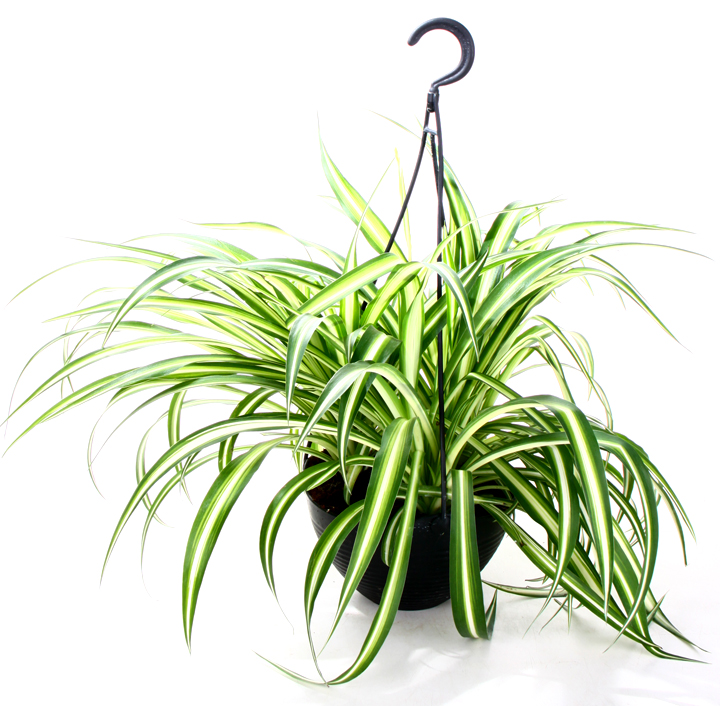
Photo courtesy of Costa Farms
Spider Plant
This creepy plant is fun to decorate with due to its long spider-like legs that grow little “spiderlings” on the ends. Transfer it into a hanging plant basket and wrap synthetic web around the outside of the basket. Cover with plastic spiders to give it extra creep. Make it kid-friendly, by painting a container black and adding spider eyes to the front to make it look like one big spider. Spider plants are known for being low-maintenance so they will grow in almost any spot.
Dracula Orchid
The Dracula orchid is not an ordinary orchid. Aptly named, as it blooms, the center of the plant looks like it could bite you with its vampire-like mouth. Wrap your container in a cape and paint it red down the sides to decorate this plant into a creepy vampire.
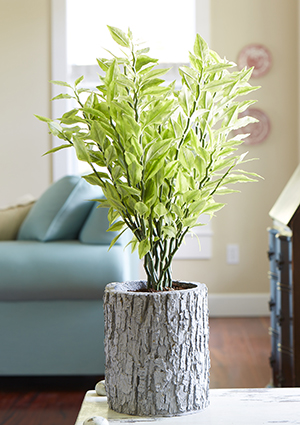
Photo courtesy of Costa Farms
Devil’s Backbone
Devil’s Backbone gets its name from the interesting zigzagging formation of the leaves resembling a creepy spine as it grows. Invite this devilish plant to your home and hang ghouls and ghosts from it to add a spooky charm. Though it may be called the Devil’s Backbone, it works hard to purify the air from toxins.
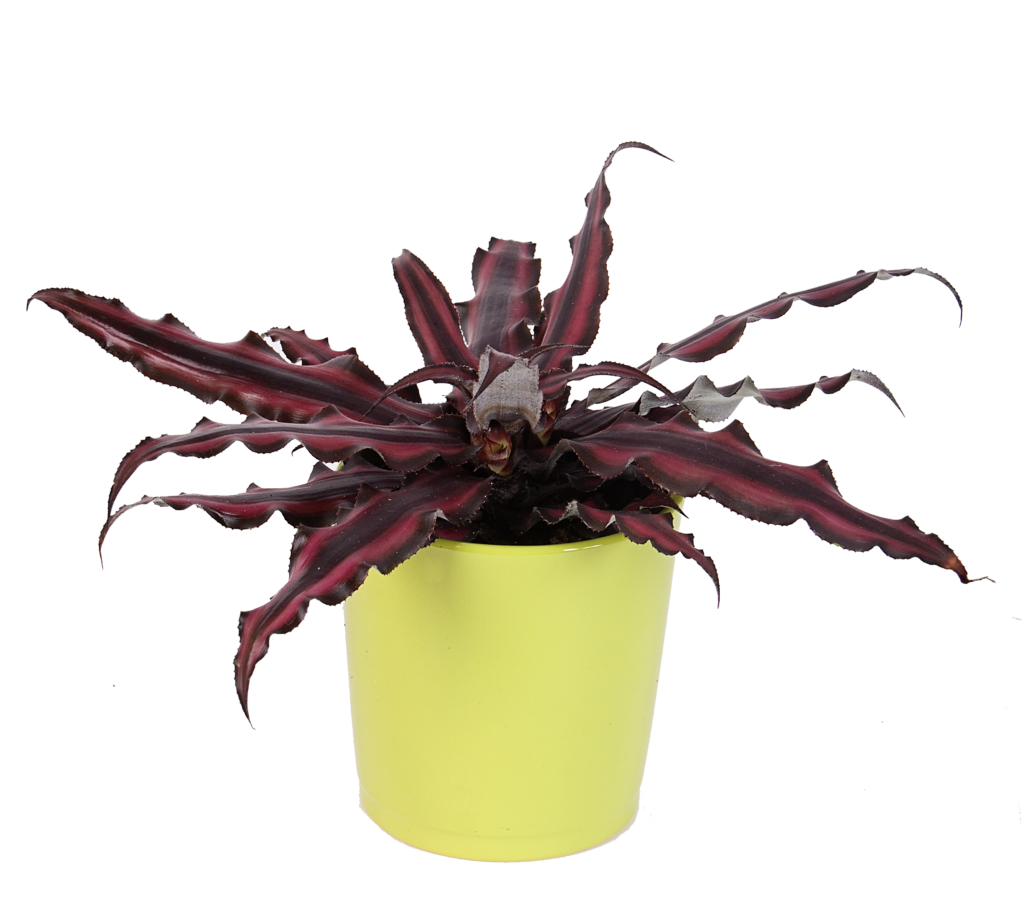
Photo courtesy of Costa Farms
Earth Star
With spiky edges and elongated “fingers”, the earth star plant is a creepy addition to your Halloween décor. Transfer into a spooky container and let it spread and it will look like something is crawling toward you. Keep in bright light to encourage growth.
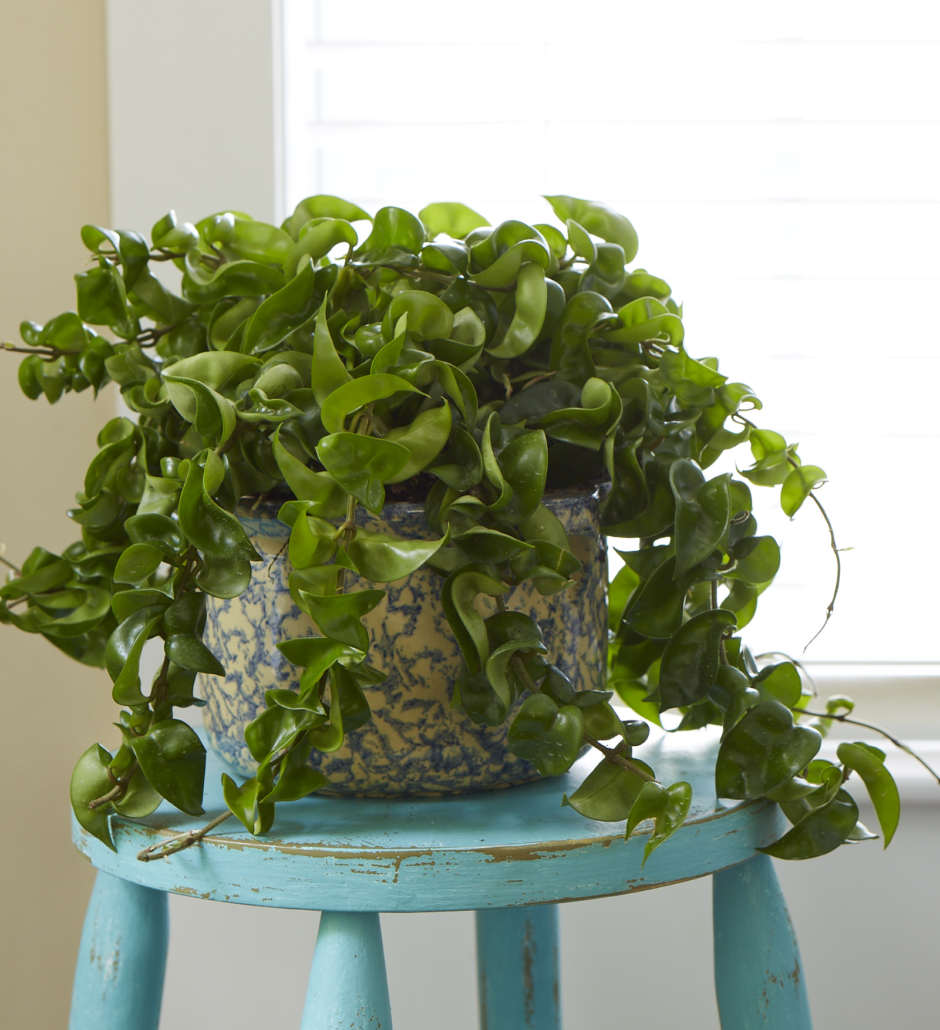
Photo courtesy of Costa Farms
Rope Plant
The rope plant’s foliage that twists and turns looks like something right out of a witch’s lair. Put a spell on your home with the shadows this plant gives off. The rope plant will flower and last up to a month.
Fun and spooky houseplants are the best way to bring live Halloween décor to your home. Feed as directed with Espoma’s Indoor! plant food.
Featured Products:
As evenings become cooler and crisper and the daylight gets shorter and shorter, it’s a signal that frost is not too far away. The change in temperature and season can leave gardeners longing for the warm summer air, instead of prepping for winter.
There’s still plenty of gardening to be done this time of year. Get the most out of your fall harvest and set your garden up for spring success by jumping on these garden tasks now.
6 Tips for Fall Gardening
Plant Trees
It’s no secret that the best time to plant a tree or shrub is in the fall. Before you plant, evaluate the landscape to assess the amount of sunlight, ground vegetation, proximity to permanent structures, and hazards, such as overhead wires or underground pipes. Choose a site where the tree will be able to grow to its mature height. Then, dig a hole twice as wide and the same depth as the root ball. Place the tree in the hole at the same depth it was growing before and fill half the hole with compost or Espoma’s All Purpose Garden Soil. Mix in an organic fertilizer such as Bio-tone Starter Plus with the soil. Backfill the hole, give it a nice drink of water and watch your tree grow.
Get Bulbs in the Ground
Spring-blooming bulbs can generally be planted any time before the soil begins to freeze. Give bulbs their best shot by planting a few weeks before the ground is frozen to help them establish roots. Be sure to add in a scoop of Bulb-tone to each planting hole.
Improve the Soil
While fall is for planting, it’s also the perfect time for prepping for next season. Healthy soil is the backbone of every successful garden. Test soil now for pH and nutrient levels and amend accordingly. Dig 4” deep with a stainless steel trowel and either use a DIY soil test or send your soil sample to the county extension office.
To adjust the PH level of your soil, use Espoma’s Organic Garden Lime to raise the pH of very acidic soil. Poke holes in the soil’s surface and scatter on the lime. Rake lightly into the top inch of soil. Or, apply Espoma’s Soil Acidifier to lower the pH of extremely alkaline soil.
Create Compost
All of those colorful leaves that are falling make for perfect additions to your compost pile. If you don’t have a compost pile already, start one! The best compost contains about 25 times more carbon-rich materials than nitrogen-rich materials. Think of these as brown and green materials. Brown materials include paper, straw or dried leaves. Green materials include garden and food scraps. Add Espoma’s Compost Starter to help speed the composting process, for rich, fertile compost.
Top with Mulch
Add a thick blanket of mulch to reduce evaporation and control weeds.
Choose organic mulch that will improve the soil as it decomposes. Lay 2 – 3” of mulch around established plants.
When mulching trees, the mulch should extend away from the plant to just beyond the drip line covering a bit of the roots. Keep 2 – 3” away from the stems of woody plants and 6 – 12” away from buildings to avoid pests.
Prep and harvest fall crops
If it looks like frost will arrive earlier than expected, protect your crops and extend your growing season by covering with a sheet, blanket or tarp. Use stakes to keep the cover from touching the plants.
Looking for an indoor project? Check out this low-light succulent planter from Garden Answer.
The changing color of leaves is one of the best performances of fall. Trees all over are shedding their summer greens and bringing in their vibrant reds, oranges and yellows. With it comes the magic of fall, the lower temperatures and cool-weather festivities for everyone to share.
Fall is the perfect time to get trees in the ground, so what are you waiting for? Add some fall color to your garden to keep the vibrancy radiating throughout the season. There are hundreds of trees that produce amazing fall color, but these five are known for their incredible transformations.
5 Fantastic Fall Trees
Red Maple
This fall classic brings the right amount of fall color to any landscape in every season. Throughout the year, this tree has a touch of red on it. During the fall, it opens with vibrant reds and wonderful yellows. Red maples are a fall favorite, which everyone seems to enjoy. Plant in zones 3-9 and watch this tree grow.
Japanese Maple
The variety you choose will determine the variety of colors. Some Japanese maples stay red year-round, while others transition with each season. With those varieties you could see green in the summer, intense reds in the spring and yellows and orange in the fall. Plant in zones 6-8 for your trees to thrive.
Sugar Maple
Finishing off the maples strong, the leaves of this fall standout can form a complete color wheel throughout the seasons. The foliage will change various shades of green in the summer, then to shades of yellows and oranges, to eventually land on bright red in the fall. Watching this tree complete the cycle is well worth planting it in the yard. Plant anywhere in zones 2-10 and enjoy this tree every season.
Sassafras
Known for making root beer from its roots, sassafras is more than just sweet. Sassafras will exceed your expectations for fall colors with its gorgeous display of purples, reds, oranges and yellows. Better yet, you will enjoy the sweet scents that emit from the limbs year-round. Plant this hardy tree in zones 4-9 and welcome fall to the yard.
Black Gum Tree
One branch of this tree can contain many shades of fall color, which makes it a contender for our fall favorites. You will find shades of orange, yellow, purple, bright red and scarlet foliage decorating this tree. The variety that will provide the best fall coloring is ‘Autumn Cascades’. It is a weeping variety, which makes it all the better for that perfect fall look. Plant in zones 4-9 and watch your tree grow to 30 to 50 feet high.
Make sure you keep the fall colors vibrant and full with Espoma’s Tree-Tone.
